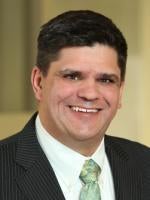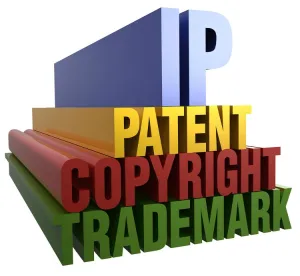In an effort to contain the COVID-19 outbreak, courts across the US are now limiting services to those that are essential and enforcing social distancing, especially in civil matters. We summarize here key provisions of the COVID-19 orders for twelve federal courts that commonly hear patent, copyright, trademark and/or trade secret cases. These courts are currently addressing more than half of the nation’s intellectual property cases, and their changes in procedures and access may necessitate yet further action by litigation counsel to ensure that pending IP actions proceed safely.
District of Delaware (>1,000 Pending IP Cases)
Despite a March 16 Order that prevented entry into the courthouse of persons who might be infected, the District of Delaware federal courthouse was closed by Order of March 19 because an attorney who appeared before the Court tested positive for the SARS-CoV-2 virus that causes COVID-19. The courthouse reopened on Monday, March 23 after “a deep cleaning of the affected areas.” By Order of March 18, all jury trials set to begin before April 30, 2020, were continued, but all deadlines set by Federal or Local Rules or Court Orders were to remain in effect unless modified by a further order of the Court or presiding Judge. Judges were encouraged to conduct proceedings by phone or videoconference. By a prior Order of March 13, the Delaware Court suspended all standing orders requiring delivery of courtesy copies to the courthouse.
The Eastern and Western Districts of Texas (>900 Pending IP Cases)
The Eastern District of Texas issued an Order on March 16, signed by Chief Judge Rodney Gilstrap, continuing all jury trials scheduled through May 1, 2020 to a date reset by each presiding judge. This continuance, however, does not include any other pending deadlines. If other deadlines need to be modified, attorneys are instructed to contact their presiding judge. With respect to bench trials, in-person hearings, scheduling conferences and other court proceedings, individual judges may continue to hold them as they deem appropriate on a case by case basis. Relief from such hearings may be sought via motion. The Court welcomed the use of telephonic or video proceedings where ever appropriate.
The Western District of Texas issued an Order on March 13 similar to the EDTX’s Order continuing all jury trials scheduled through May 1, 2020. By further Order of March 20, the courts were deemed closed with certain exceptions and all settings in any civil matter scheduled before May 1, 2020 were cancelled. However, all deadlines in a scheduling order, other than a trial date, remain in effect unless modified by the assigned Judge. The Court has provided a special webpage to provide a single location to check for existing and future Orders pertaining to the COVID-19 Pandemic.
The Northern, Central and Eastern Districts of California (>2,300 Pending IP Cases)
In an Order issued on March 16, the Northern District of California announced that for all civil cases, “[n]o jury trial will be commenced before May 1, 2020,” and indicated that all civil matters will be decided on the papers, or if the assigned judge believes a hearing is necessary, the hearing will be by telephone or videoconference. The Court also suspended the requirement for provision of courtesy copies to the Court, but its drop boxes remain available for filings as indicated in its Notice. In another Order issued March 16, all courthouses in the district were closed to the public until May 1, 2020, and the San Jose Courthouse is closed entirely until April 7. By Notice of March 18, updated on March 23, the Court made provision for civil hearings held by teleconference to be conducted on a conference call line available to members of the press and public, with dial-in information available on each case’s docket.
The Central District of California issued an Order on March 13 that prevented entry into the courthouse of persons who might be infected. In a further Order that day, the Court continued all jury trials set to begin before April 13, 2020 and announced it would not call in jurors for service during this time. It emphasized that “[a]ll courtroom proceedings and filing deadlines will remain in place unless otherwise ordered by the presiding Judge,” and provided that “[i]ndividual judges may continue to hold hearings, conferences, and bench trials in the exercise of their discretion.” However, in a Press Release on March 19, the Court announced that all courthouses were closed to the public for all civil matters and, further, that no hearing would go forward in civil matters except for emergency time-sensitive matters, which would proceed telephonically only. The Court has created a webpage for accessing these orders and important updates concerning its measures relating to coronavirus.
The Eastern District of California issued an Order on March 12 preventing entry into the courthouse of certain persons who may be infected with SARS-CoV-2. By Order filed March 17, it was announced that for all civil cases, “[n]o jury trial will be commenced before May 1, 2020,” but provisions were made that “[i]ndividual judges may continue to hold hearings, conferences and bench trials in the exercise of their discretion, including by teleconference or videoconference.” However, by Order of March 18, all courthouses in the district were closed to the public with all civil matters to be decided on the papers or, “if the assigned Judge believes a hearing is necessary, the hearing will be by telephone or videoconference.” It was further provided that “[a]ny Judge may order case-by-case exceptions to any of the above numbered provisions for non-jury court matters at the discretion of that Judge or upon the request of counsel, after consultation with counsel.” The Court has established a webpage consolidating information regarding court operations in view of COVID-19.
The Eastern District of Virginia (>100 Pending IP Cases)
The Eastern District of Virginia has updated its homepage to include a section that provides a chronological summary and listing of all General Orders relating to its response to the pandemic. Pursuant to the Court’s Order of March 16, all proceedings starting March 17 through March 31, 2020 were suspended with the exception of critical or emergency matters, and any proceeding expressly excepted by order of the presiding judge. Further, all filing deadlines between March 17 and March 31, 2020 were extended by fourteen days unless the presiding judge in an individual case sets a different date by an order issued after March 19.
The Northern District of Illinois (>600 Pending IP Cases)
By Order of March 17, the Northern District of Illinois vacated an order issued the day before and extended all deadlines by 21 days in all civil cases, whether the deadlines were set by the court or by the Rules of Civil Procedure or Local Rules. In addition, all civil case hearings, trials, and settlement conferences scheduled from March 17, 2020 until April 3, 2020 were stricken from the calendar, to be re-set by the presiding judge on or after April 6, 2020. By Order of March 20, the clerk’s office at the Dirksen courthouse was closed to public entry and the requirement for submission of courtesy copies to the Court was suspended. The court remains accessible via electronic filing, and, in emergency situations and where resources permit, phone conferencing and video conferencing. However, if a timely extension motion is filed, then the Court has deemed that good cause exists for the extension in light of current public-health concerns.
The Southern and Eastern Districts of New York (>1,300 Pending IP Cases)
The Southern District of New York issued a Notice on March 9 preventing entry into the courthouse of persons who may be infected with the coronavirus. By further Order of March 13, the court suspended the requirement for personal service of process. By Order of March 16, entrance to the courthouses was restricted. In a Memorandum dated March 20, the court made provisions for continued hearing of criminal cases and indicated that “Civil Case Operations will proceed at the discretion of the individual Judge.” In-court appearances will be limited strictly to emergency matters which should be conducted by teleconference or videoconference if a witness is required to be present. In addition, civil cases filed electronically will be processed and assigned to judge at the present time. Orders and related notices regarding the COVID-19 outbreak are available at the court’s website.
On March 9, the Eastern District of New York issued an Order preventing entry into the courthouse of persons who may be infected with the coronavirus. On March 16, the Court issued an Order continuing all trials scheduled to begin before April 27. Compliance with all trial specific deadlines scheduled for that same time are left to the discretion of the assigned judge. Trials that began before March 16 and that have not yet concluded were permitted to continue.
The District of New Jersey (>500 Pending IP Cases)
The District of New Jersey issued an Order on March 16 that suspended the requirement for delivery of courtesy copies. In a separate Order that same day, the Court continued all jury selections and jury trials scheduled to begin before April 30 pending further order by the Court. All deadlines set by Federal or Local Rules or Court Orders, including scheduling orders, remain in effect unless modified by further Order. The Order noted that any dispute over whether discovery can be effectively accomplished in a manner consistent with applicable health guidelines may be referred to the Magistrate Judge for resolution with the principles of flexibility and accommodation to reasonable requests for filing or scheduling adjustments necessitated by reasonable and fact-based travel, health or safety concerns, or advice or directives of public health officials.
Federal Circuit Court of Appeals
In an Order of March 16, the Federal Circuit Court of Appeals declared that only counsel and parties with a scheduled-in-person hearing and credentialed members of the press are permitted in the National Courts Building and their access is limited to the lobby, the scheduled courtroom, surrounding corridors, the Clerk’s Office reception, and the attorney lounge. In a March 20 Order, the Court indicated it will only accept for filing documents submitted by email. This order also states that “[a]ll existing deadlines in cases remain in effect.” However, as of March 23, the Federal Circuit has nothing scheduled until April 6, 2020 with the exception of a single panel scheduled this week reviewing an appeal on the briefs.





 />i
/>i
